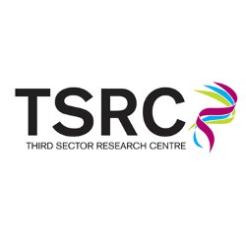The Third Sector Research Centre has called for more consensus on what is meant by "social enterprise", saying that some focus on business with a social aim, while others just include charities which trade.
In a new report, the TSRC says the common definition of a social enterprise as an organisation which earns over 50 per cent of its income from trading, and invests more than 50 per cent of its surplus into social causes, is too loose a definition which causes different interpretations of a social enterprise.
The report highlights the fact that the majority of advisory support groups tend to focus their help on civil society organisations engaged in trading, rather than the private business sector.
However, when TSRC analysed a commonly-quoted census of social enterprises, which calculates 62,000 in the UK, it found around 89 per cent were private sector organisations.
But, the census was compiled by the Annual Small Business Survey, which takes small businesses as its sample frame, hence the figure is heavily biased towards this sector, says TSRC.
Fergus Lyon, associate director at TSRC, said: “The challenges in measuring social enterprise in many ways reflect the contradictions within social enterprise itself. What might be considered a social benefit by one person may not be by others, such as sports or social clubs for example. Furthermore, surveys have relied on organisations judging whether they consider themselves to be social enterprises.
“There is evidence that many organisations may reject the term despite meeting the criteria, while others use the term despite failing the criteria. Future research should look at social enterprise activity in all types of organisations and not get stuck on debates of what is and is not a social enterprise. We also need to examine the social impact of enterprises whatever their legal form. ”
Co-author Simon Teasdale added: “As the coalition government seeks to develop its policies on the Big Society, we hope that a better understanding of the scale of the sector, as well as clarity and consistency in what is being measured, will help give policy-makers a stronger evidence base on which to make their decisions. The lack of a legal definition of social enterprise makes it vital to make clear what is being measured and why.”
Peter Holbrook, chief executive of the Social Enterprise Coalition agreed that clearer definitions will be vital as the social enterprise world grows:
“Individual social enterprises will need to be defined more clearly if they are going to play a much bigger part in UK economy, not only in the delivery of public services but across all areas of business," he said. "Without more clearly agreed parameters, the progression of social enterprise will be put in jeopardy, a risk we cannot afford at this moment of opportunity.
“In order to monitor the growth and impact of the sector it is also vital that there is a collective effort from government and from those within social enterprise to commit to improved research and tracking. Only then will we really be able to measure our success and contribution to society and the economy.”
He added that funding cuts could cause further confusion: “There is a risk that resulting from cuts, we will see the creation of spin-off organisations from public services that are not social enterprises, which could be vulnerable to buy-outs from the private sector. In anticipation of wider and deeper cuts in the near future, we need the Government to give guidance and support, and make sure that commissioning enables real social enterprises to thrive.”
Lucy Findlay, managing director at the Social Enterprise Mark said the scheme was helping to clear confusion:
“The Social Enterprise Mark is demystifying social enterprise.
In fact, by clearly communicating the value and meaning of social enterprise through the Social Enterprise Mark, we have helped a number of commercial businesses transform into social enterprises, for example ADP-Projects and The Ideas Mine. The criteria for the Social Enterprise Mark are essential in making this happen."









